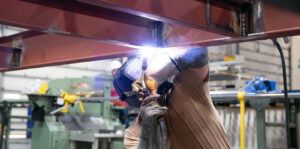Duration:
7 months
Campus Availability:
- Phoenix, AZ
Upcoming Start Dates:
Jul. 8, 2025 & Aug. 11, 2025
START TRAINING FOR YOUR WELDING CAREER TODAY
The aim of RSI’s Welding Specialist program is to equip students with the welding skills necessary for entry-level positions that involve thin alloy, structural, and pipe and pipeline welding.
These types of welding have applications in several key industries: construction, transportation, manufacturing, petroleum and many more.
In RSI’s Welding Specialist program, students receive hands-on training in core welding processes with widespread industry applications:
- shielded metal arc welding (SMAW)
- gas metal arc welding (GMAW)
- flux-cored arc welding (FCAW)
- gas tungsten arc welding (GTAW)
Your welding classes will provide training in fundamental welding procedures, such as:
- how to prepare arc welding equipment
- how to cut metal using thermal torch techniques, and
- how to prevent weld distortion
Welding safety best practices and basic metallurgy are also taught.
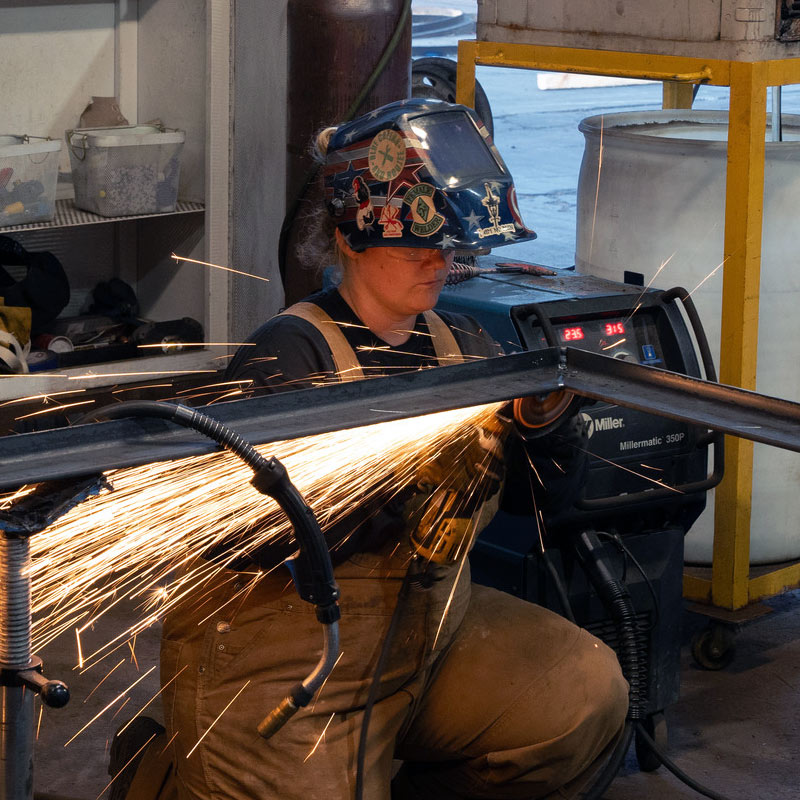
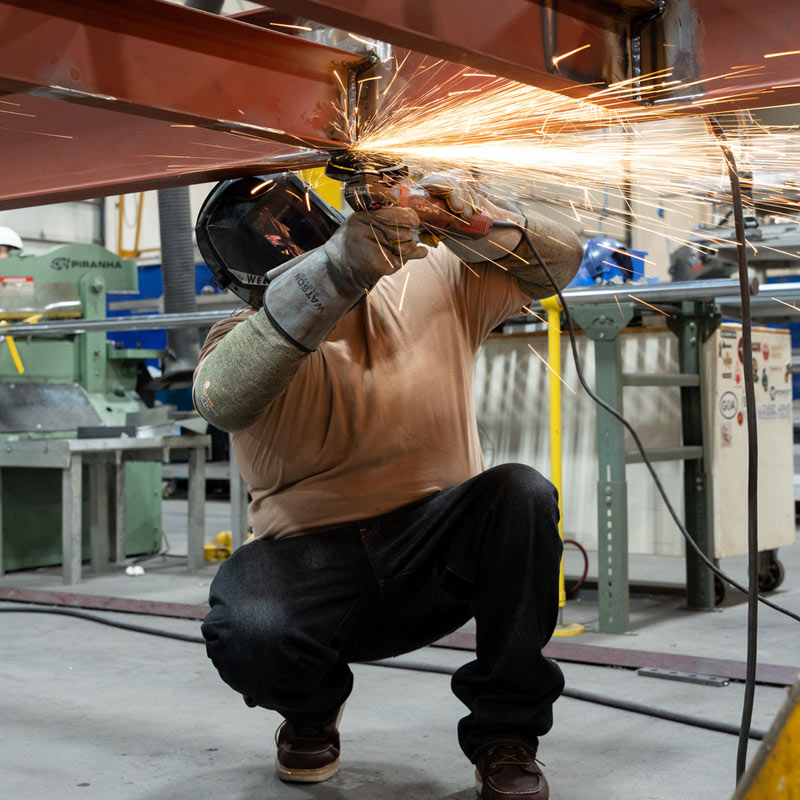
Advanced Welding Career Opportunities
Students are awarded a diploma after successful completion of RSI’s welding school program, which is designed to prepare them to take the American Welding Society welder certification and similar employer tests. These certification greatly improve that chances of being eligible for advanced welding career opportunities.i
RSI offers a focused, hands-on welding program with plenty of benefits for students.
- Time: Complete your welder training in as little as 7 months!
- Small Class Sizes: 20:1 student-teacher ratio.
- Flexible Scheduling: Welding lab takes only 5 hours per day, 4 days a week (75% of your training time); the other day is spent in class. With morning, afternoon, evening, weekend and overnight welding courses available, you can work while you train.
- Industry Standard Equipment: Train on the same kinds of equipment you could use when you get a job, such as welding machines, plasma and track cutters, and bench grinders.
- Experienced, Professional Instructors: Learn from welders who know the industry firsthand from experience.
Employment is Expected to Grow for Welding in the US by 45,800 Jobs by 2033!**
A Welding School with Flexible Class Schedules
Morning, Afternoon, Evening, Weekend and Overnight Classes Available
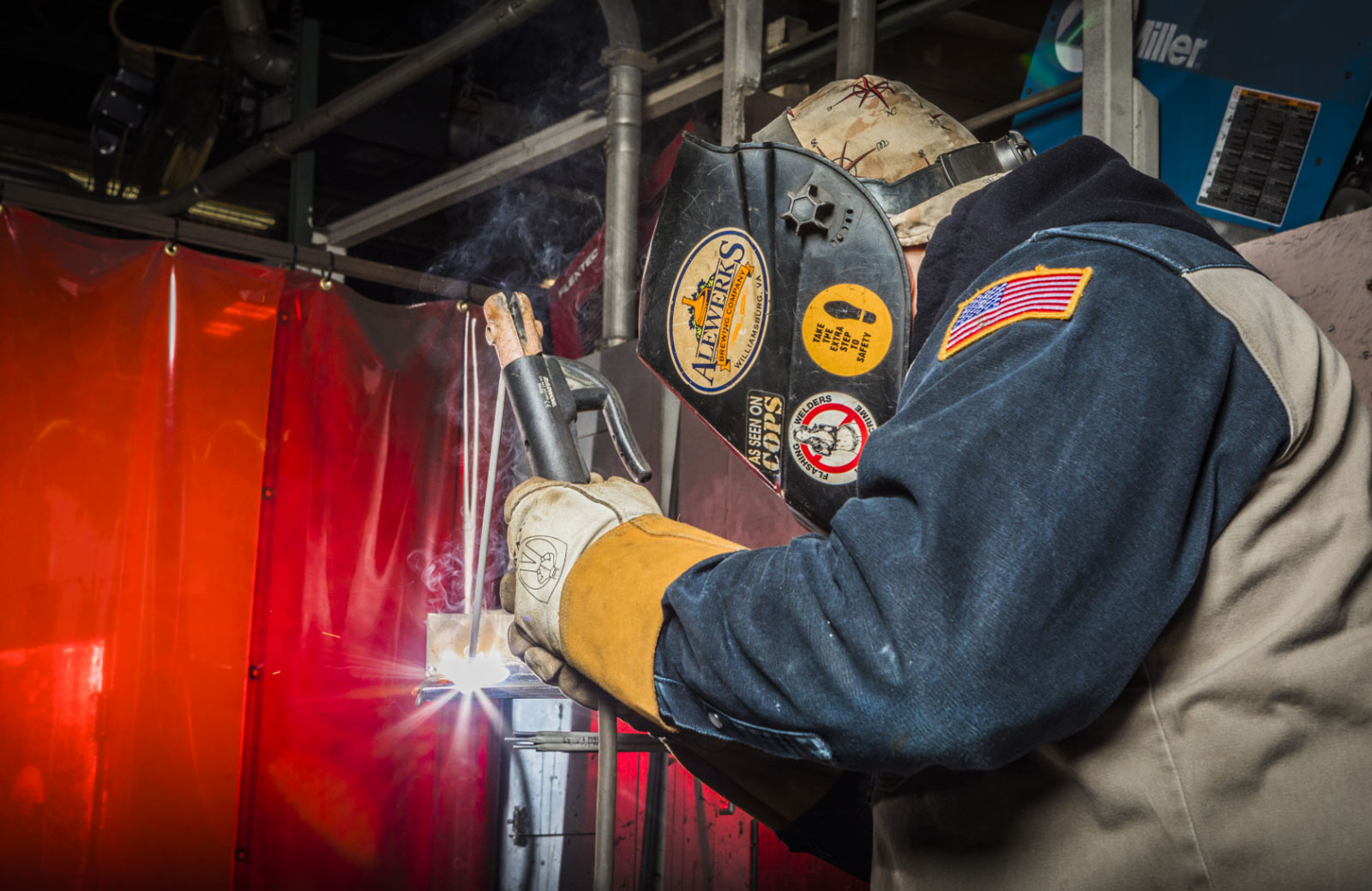
Whether you’re just graduating from high school, changing your career or transitioning from military to civilian life, RSI offers flexible welding class schedules.
We’ll help you find the right program and the right schedule to set you up for success. Contact us for more information on upcoming class times and start dates for the Welding Specialist program.
Welding Specialist Class Start Dates
Class Schedules (Monday-Friday)
- Morning 7am-12:15pm
- Afternoon 12:45pm-6pm
- Evening 6:30pm-11:45pm
- Overnight 12:00am-5:15am
Weekend Schedule
- Tue/Thu (Classroom) 6:30pm-9:00pm
- Sat/Sun (Lab Days) 8:00am-6:00pm
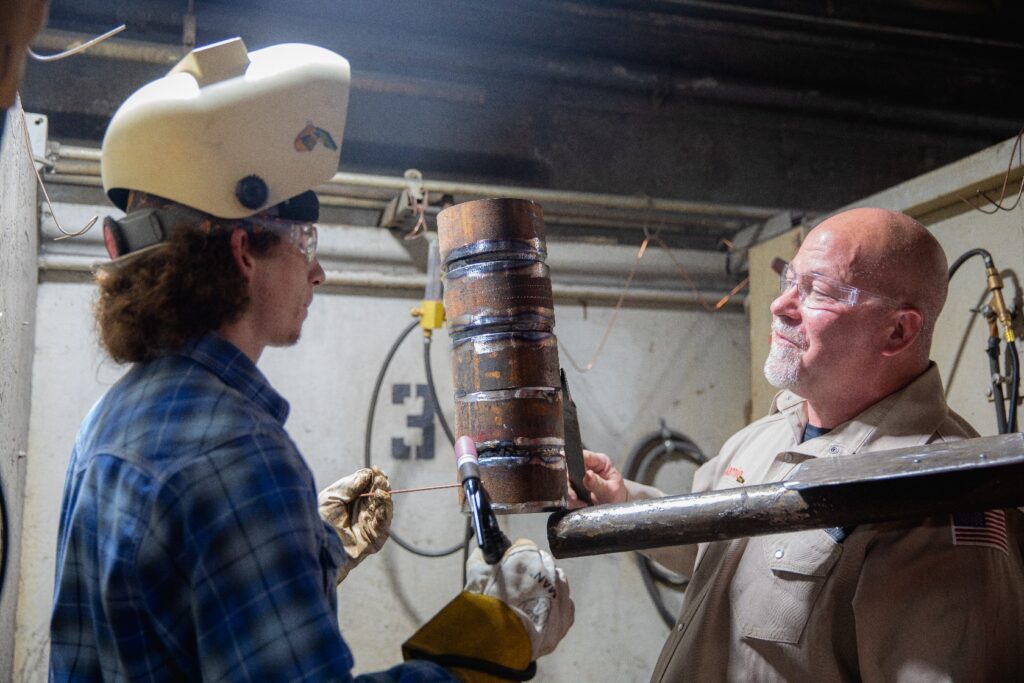
HYBRID INSTRUCTION
At RSI, we know you’re here to build real-world skills, not spend endless hours in a classroom. That’s why we offer a flexible online hybrid model, allowing you to complete the theoretical parts of your program online, as long as it’s done by the deadline. When you’re on campus, your time is spent where it counts: hands-on in the lab with tools, equipment, and expert instructors.
This approach gives you the freedom to balance school with other responsibilities, while still getting the hands-on training you need for a successful career in the skilled trades.
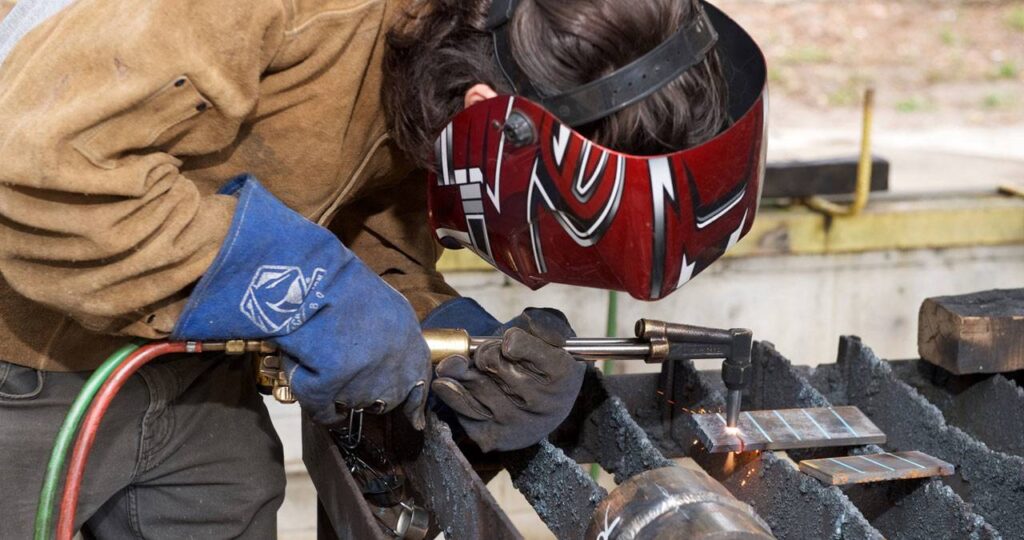
First Annual RSI National Welding Competition
Are you a High School senior interesting in learning more about the trades? Tulsa Welding School/The Refrigeration School is hosting our annual High School Welding Competitions early next year to students around the country!
First place winners for each campus get a full tuition scholarship, runner-ups will receive partial scholarships, and ALL participants get $500 towards their tuition if they enroll and TWS/RSI.
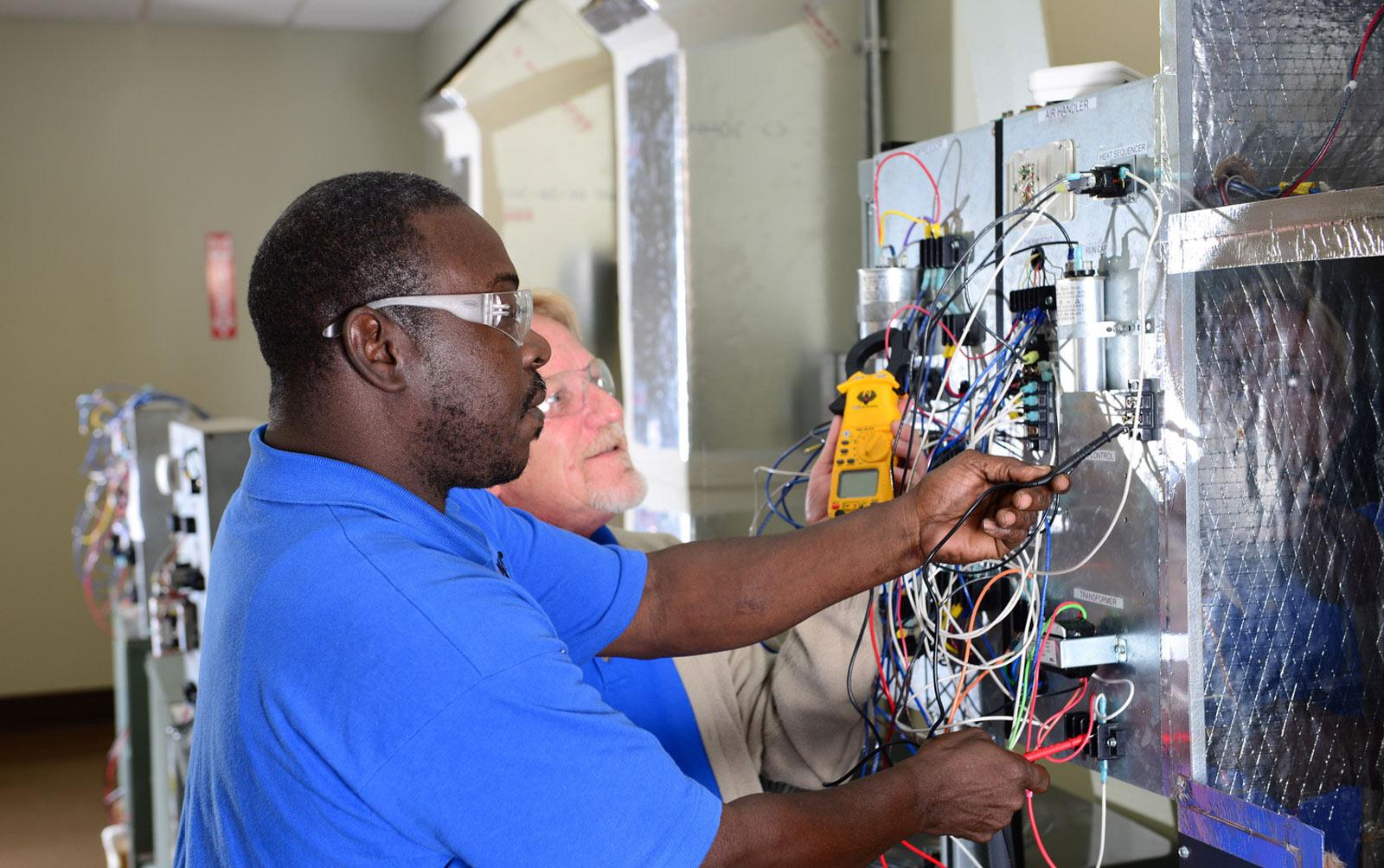
Experiences & Opportunities
Resources for RSI Students
Virtual Tour
Take a virtual tour of our campuses! Explore the classrooms, labs and shop floor with our unique interactive experience.
Employer Partnerships
RSI has partnerships with major employers across the United States and even internationally. Our dedicated Career Services team will be there to support you every step of the way after graduation.
The Right Tools for the Job
When you begin your education at RSI, we provide you with an extensive gear package. You get the high quality professional tools you need to succeed. Ask your admissions representative for more information about the gear package for your program.
Scholarship Opportunities
Learn more about what scholarship opportunities are available and how you might qualify for one. Start the process of applying for a scholarship today!

Ready to Move Forward?
All it takes to move forward is making that first step. Whether you need more information, schedule a tour or want to speak to someone, we’re with you every step of the way.
Are YOU ready to change your life?
Listen to these RSI graduates who changed theirs.
We all come from different walks of life, and different circumstances, but it’s the hard work we do and the blood sweat and tears put in to make us who we are today.
The Refrigeration School gave these graduates the structure, confidence, and guidance they needed to make a difference in their lives. It only takes one decision to start the journey on a path towards a better career. A better Life.
Hear the stories of these RSI graduates and how they changed their life:
Michael Gabhart
From hitting rock bottom to owning his own business, Michael was able to take control of his life and be the hero his community needed. RSI was able to guide him on the path to success - Hear his story on how RSI changed his life.
David Mclean
With so many options in front of him and no clear path ahead, David chose to invest in his life and make the decision to enroll at a trade school. TWS gave him the opportunities to be the best version of himself he could be. Professional Welding Graduate from our TWS Jacksonville Campus (Part of the StrataTech Education Group Family of Schools) - Hear his story on how TWS changed his life.
Cody Hudgens
Not basing his chances on luck, Cody took the opportunity of becoming a welder in his own hands after serving in the United States Marine Corps. TWS gave him the knowledge and skills he needed to take his passion to the next level. Professional Welding Graduate from our TWS Tulsa Campus (Part of the StrataTech Education Group Family of Schools) - Hear his story on how TWS changed his life.
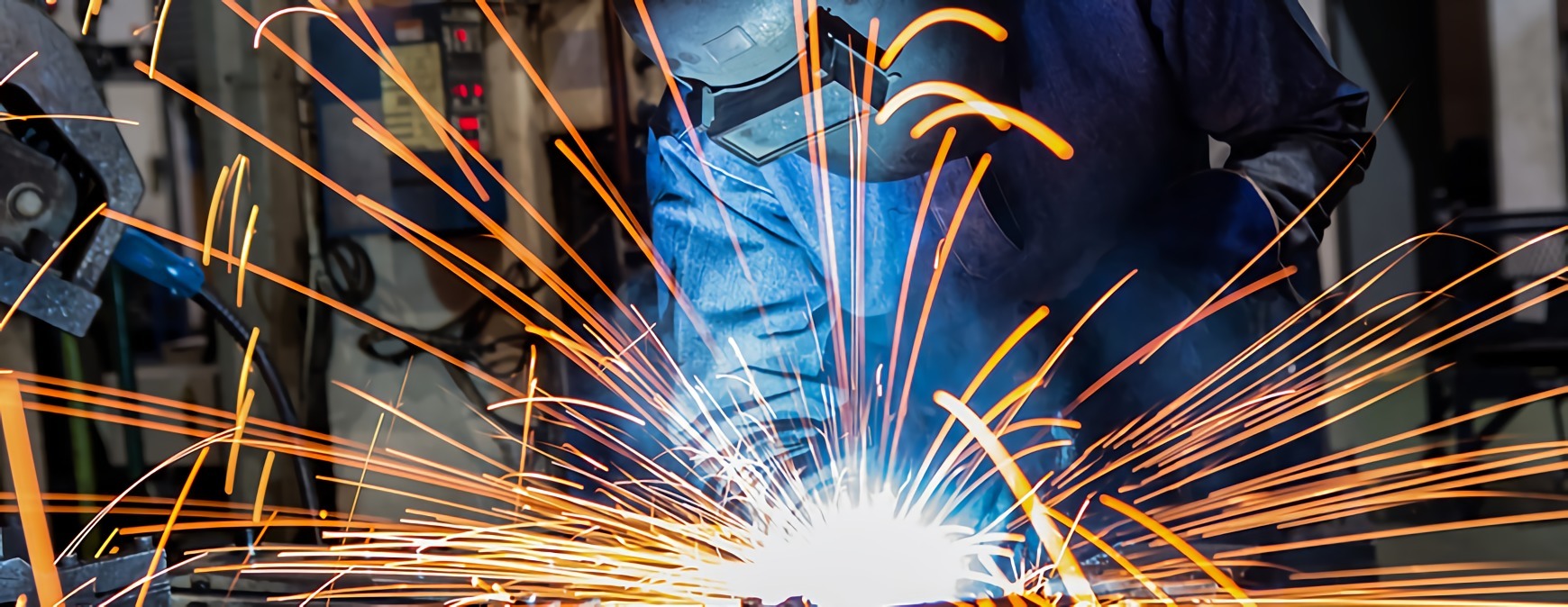
Program Courses for Welding Specialist
Welding Fundamentals
WLD101
This course is designed to provide the student with a wide range of fundamental information about a career in welding and to begin building critical welding skills. Students learn about career opportunities and the importance of safety awareness that will be reinforced in later laboratory exercises. Other fundamental skills include learning the basic layout of construction drawings and how to read and correctly interpret welding symbols. Students learn thermal torch techniques to cut flat stock. They will also learn and use Plasma Cutting and Carbon Arc gouging procedures. As they begin to learn about arc welding processes, students learn to set up welding equipment, the components of an arc welding machine, and the various types of electrodes used in arc welding procedures. Using an E7018 electrode, students begin by practicing basic SMAW welding processes and technique. Project assignments allow students an opportunity to practice and develop welding and cutting skills.
Requirements
- 4 Semester Credit Hours
- 25 Lecture Hours
- 100 Lab Hours
- 125 Total Contact Hours
- 7 Outside Prep Hours
GMAW/FCAW Processes
WLD105
This course is designed to introduce students to two new and related welding processes. GMAW or MIG uses a torch designed to provide a shielding gas for the weld and an automatic wire feed system that provides a constant feed of the filler metal. FCAW or Fluxcore uses a similar torch but uses a powdered flux to shield the weld. These processes are a considerable departure from processes previously used. Students learn to set up and operate GMAW/FCAW welding equipment. These processes are applied in different combinations for welding plate in various basic positions. Students learn to correctly prepare pipe for GMAW/FCAW welding processes. In addition, as part of an expanding knowledge about construction drawings, students learn about isometric drawings and their importance as a three-dimensional picture of an object.
Requirements
- Prerequisite Course(s): WLD101, WLD110, WLD115, & WLD120
- 4 Semester Credit Hours
- 25 Lecture Hours
- 100 Lab Hours
- 125 Total Contact Hours
- 7 Outside Prep Hours
Structural Welding
WLD110
This course essentially focuses on developing flat welding techniques in three basic positions and builds on the fundamental knowledge and skills learned in WLD101. SMAW processes are used to practice weld technique and perform basic butt welds using mild steel. Two primary welding electrodes are applied to various welding exercises and students learn fundamental procedures related to root pass and fill welds. Students continue to build their skills through a series of project exercises designed to reinforce skills and knowledge learned. Students expand their knowledge about related welding diagrams and drawings and methods of coding various types of metal. Drawings are used to communicate lab project information and reinforce reading and interpreting welding symbols. Students are also introduced to basic destructive weld testing techniques and the importance of quality welds to achieve maximum strength and integrity of the metal. Basic principles of metallurgy explain to students the changes in metals’ internal structure during the heating and cooling processes. Students are also introduced to welding pipe. The challenge is to weld consistently while moving around the pipe. Five-inch diameter pipe is cut using thermal processes and prepared for welding. For the exercise, students weld pipe in only one basic position.
Requirements
- Prerequisite Course(s): WLD101
- 4 Semester Credit Hours
- 25 Lecture Hours
- 100 Lab Hours
- 125 Total Contact Hours
- 7 Outside Prep Hours
Pipe Welding
WLD115
This course presents new challenges from the first two courses. Students expand their knowledge and skills to perform and practice basic pipe welding techniques using two welding processes (SMAW & GTAW). The GTAW process is introduced and students practice performing basic root welds on pipe coupons. The remainder of the welding procedure applies SMAW processes to complete the fill and cap welds. Reading and interpreting basic pipe drawings, students cut pipe coupons to length and bevel the pipe ends using thermal and mechanical beveling processes. Students face their first experience at practicing uphill and other welding techniques simultaneously. They practice welding in multiple positions as they travel around the pipe to complete the weld. Also, as a continuation of basic metallurgy, students learn various techniques for identifying types of metal using visual and mechanical testing techniques.
Requirements
- Prerequisite Course(s): WLD101 & WLD110
- 4 Semester Credit Hours
- 25 Lecture Hours
- 100 Lab Hours
- 125 Total Contact Hours
- 7 Outside Prep Hours
Advanced Pipe Welding
WLD120
Students continue to develop, apply and practice their pipe welding skills. Mild steel pipe is welded in various positions using primarily GTAW (TIG) welding processes. In addition, students learn to use stainless steel electrodes to weld high carbon steel. Using two-inch diameter pipe, students practice using the GTAW process to weld the root and complete the fill and cap portion of the weld using SMAW processes. They also learn to properly rig and balance pipe loads, use hand signal communication to the crane operator, and lift and place pipe in preparation for welding operations. Most pipe welding is performed in an open environment using various types of portable welding equipment. Students learn to set up and safely operate portable welding units for structural and pipe welding operations. Emphasis is given to awareness about electrical safety and steps necessary to prevent electrical shock.
Requirements
- Prerequisite Course(s): WLD101, WLD110, & WLD115
- 4 Semester Credit Hours
- 25 Lecture Hours
- 100 Lab Hours
- 125 Total Contact Hours
- 7 Outside Prep Hours
Welding Capstone
WLD125
The welding capstone course is a transition course from the classroom to the field. Students are challenged in the laboratory to use all the welding knowledge and skills they have gained in a series of exercises designed to reinforce prior instruction, hone skills, and practice production rates that meet industry standards. Students are given three possible options they can pursue to complete course requirements. The selection of the option depends on the method students intend to apply after graduation.
Requirements
- Prerequisite Course(s): WLD101, WLD105, WLD110, WLD115, & WLD120
- 4 Semester Credit Hours
- 25 Lecture Hours
- 100 Lab Hours
- 125 Total Contact Hours
- 7 Outside Prep Hours
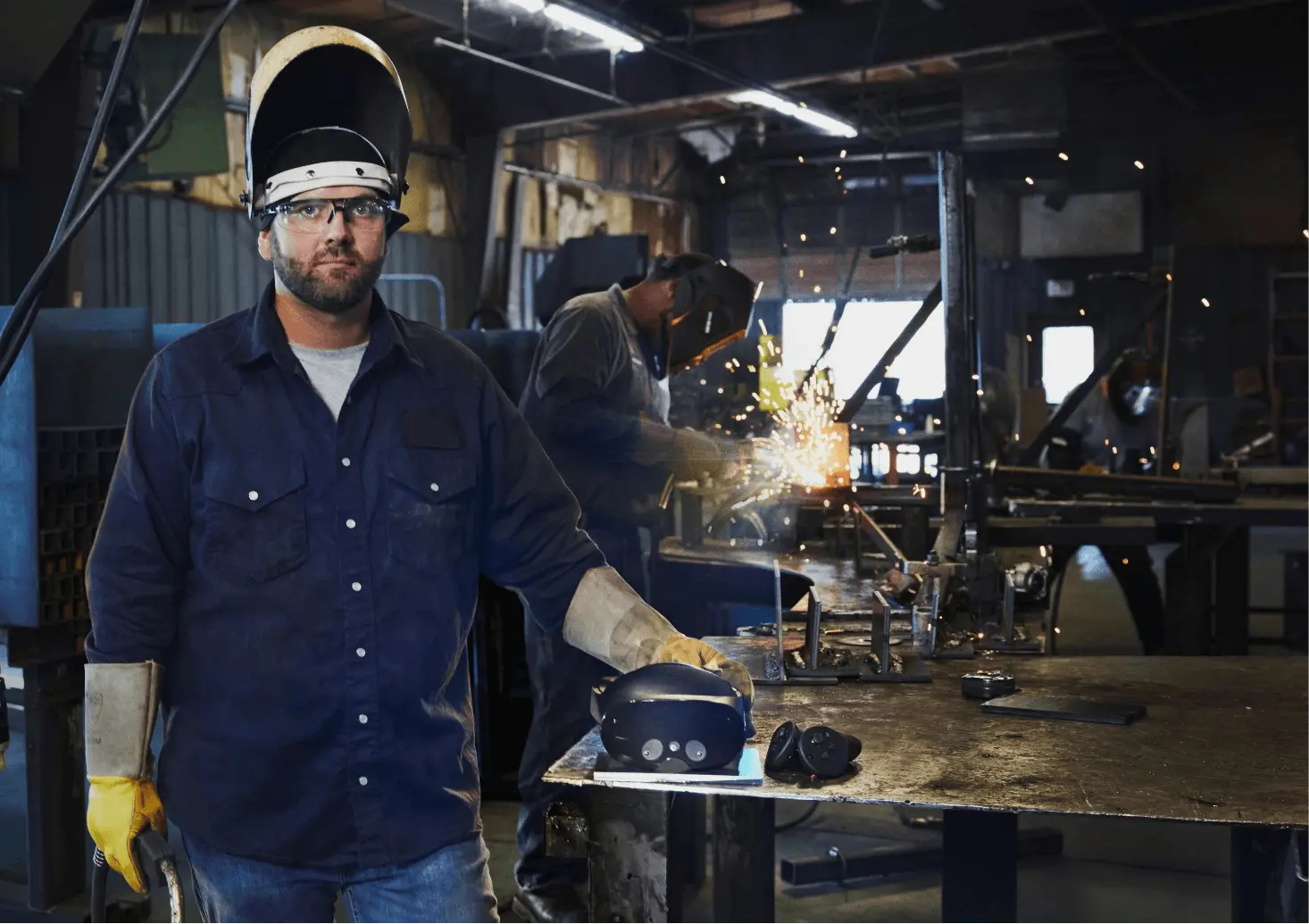

ALL New Welding School Students Get an Oculus Quest 2 loaded with OcuWeld Training Software!
RSI is excited to launch OcuWeld utilizing Virtual Reality (VR) to enhance your welding training. OcuWeld is a new and innovative Virtual Reality (VR) welding simulator designed by expert welding instructors for our welding students.
You can access OcuWeld anytime, anywhere – with or without WIFI. It enables you to practice your welding skills as part of our program here at RSI and the Oculus Quest 2 is yours to keep!
